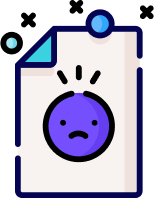The Informal Hypothesis Template
Null Hypotheses
Expected Results
Testing ideas
Assumptions
Problem solving structure
An informal hypothesis template may include the following elements:
Research Question or Problem Statement: Begin by clearly stating the research question or describing the problem you aim to investigate or address. This sets the context for your hypothesis.
Null Hypothesis (H0): If applicable, provide a null hypothesis, which represents the default assumption or no effect scenario. It typically states that there is no significant relationship or effect between variables.
Alternative Hypothesis (H1 or Ha): State the alternative hypothesis, which is your research hypothesis or the assertion you want to test. It should propose a specific relationship or effect between variables.
Variables: Identify the variables involved in your hypothesis. These are the factors you believe are related or have an effect on one another. Clearly define and label each variable.
Directionality: Specify the direction of the expected relationship, if applicable. Will the relationship be positive (increases in one variable correspond to increases in the other), negative (increases in one variable correspond to decreases in the other), or non-directional (no specific expectation)?
Predictions: Describe what you predict will happen if your hypothesis is supported by data. What outcomes or observations do you expect to see?
Justification: Provide a brief rationale or explanation for why you are proposing this hypothesis. What background information, theory, or evidence supports your hypothesis?
Assumptions: If any assumptions underlie your hypothesis, explicitly state them. Assumptions may involve conditions, limitations, or specific contexts in which your hypothesis applies.
Testing and Analysis: Describe how you plan to test or analyze your hypothesis. What methods, experiments, data collection, or statistical tests will you use to investigate the relationship or effect?
Expected Results: Anticipate the potential outcomes or results of your hypothesis testing. What would support your hypothesis, and what would contradict it?
Implications: Consider the implications of your hypothesis being supported or refuted. What would it mean for your research or problem-solving effort if your hypothesis is confirmed or rejected?
References: If you're drawing on existing research or theory to formulate your hypothesis, provide references or citations to the relevant sources.
It's important to note that informal hypothesis templates are flexible and can be adapted to different research or problem-solving contexts. They serve as a structured framework for developing hypotheses, guiding the thought process, and clarifying the expected relationships or outcomes. Researchers and scientists often use these templates as a starting point before formalizing their hypotheses for empirical testing or analysis.

0 Reviews
Riaan is a dynamic leader, coach, facilitator, Lean Six Sigma Master Black Belt with over 20 years of hands-on experience driving business results. Riaan is highly skilled and has worked across diverse industries internationally. With a degree in Chemical Engineering, Riaan started in the major breweries and bakeries in South Africa and was so dedicated to his work that he was often known to take his work home with him.
